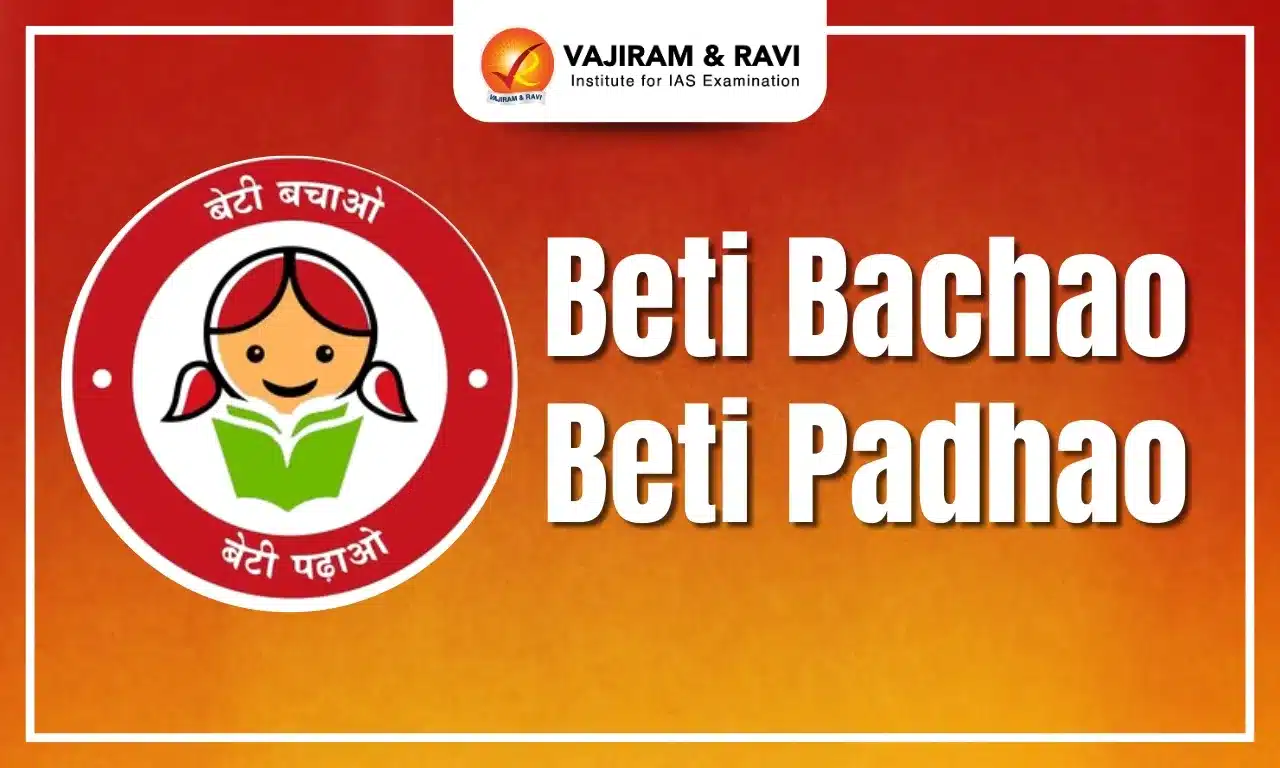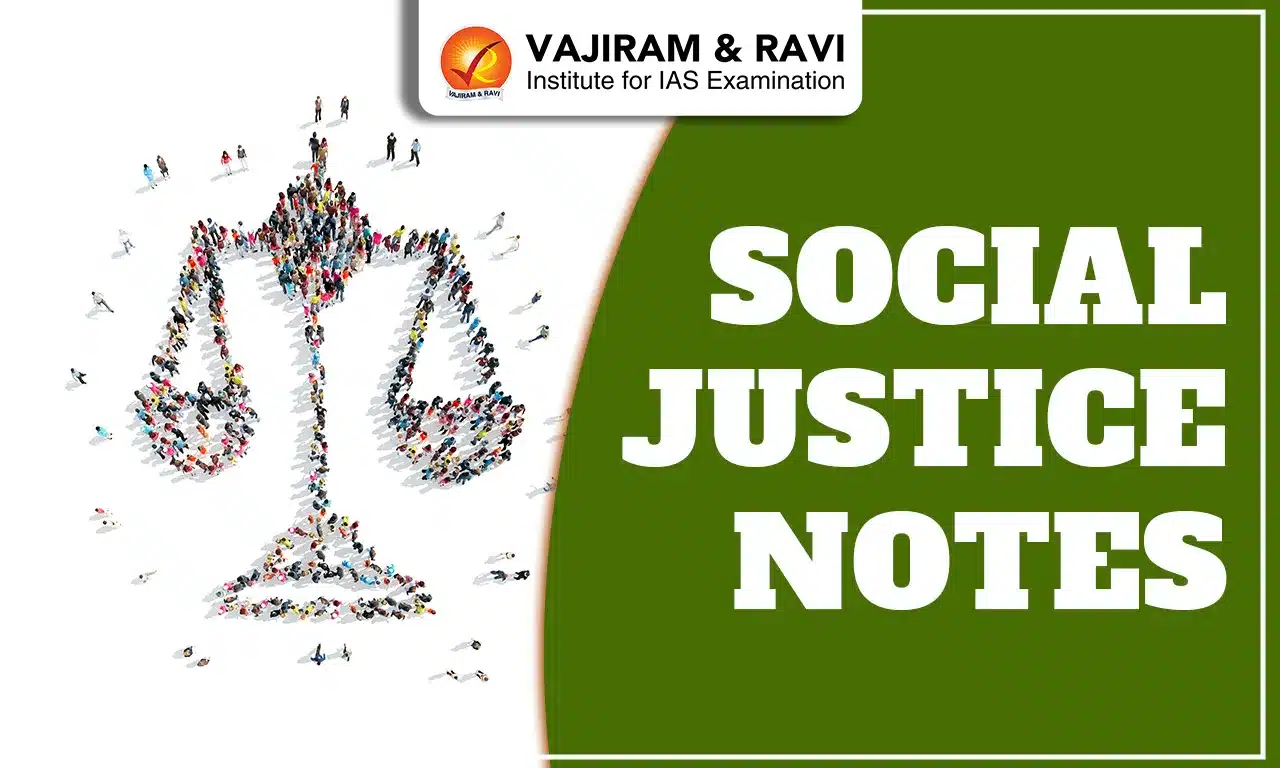Beti Bachao Beti Padhao (BBBP), translating to "Save the Daughter, Educate the Daughter," is a flagship campaign of the Government of India, launched on January 22, 2015, in Panipat, Haryana. The scheme was introduced in response to alarming census data revealing a consistent decline in the number of girls per 1,000 boys, particularly in states like Haryana, Punjab, and Uttar Pradesh.
BBBP is more than just a government program; it is a social movement aiming to shift mindsets, eradicate gender bias, and empower girls through improved access to education, healthcare, and protection. The campaign leverages mass media, community mobilisation, and grassroots interventions to challenge patriarchal norms and promote the value of the girl child.
About Beti Bachao Beti Padhao
Beti Bachao Beti Padhao (BBBP) initiative, meaning “Save the Girl Child, Educate the Girl Child,” is a flagship initiative of the Government of India launched in 2015. It aims to address the declining child sex ratio, prevent gender-based discrimination, and promote education and empowerment of girls across the country.
- The scheme focuses on improving awareness, ensuring financial and educational support, and eliminating harmful practices like female foeticide.
- Implemented through a tri-ministerial approach involving Women and Child Development, Health, and Education ministries, BBBP was introduced with an initial budget of ₹100 crore to create long-term, sustainable change.
Beti Bachao Beti Padhao Scheme
Beti Bachao Beti Padhao scheme is a comprehensive government initiative that combines awareness, advocacy, and direct support for the girl child. The Beti Bachao Beti Padhao Scheme is structured to operate at multiple levels, ensuring a comprehensive approach to tackling gender disparities. Policies and guidelines are formulated at the national level, while state and district authorities are responsible for implementation and monitoring.
Beti Bachao Beti Padhao Objectives
Beti Bachao Beti Padhao Objectives include preventing gender-biased sex selection, improving the child sex ratio, promoting education and empowerment of the girl child, and encouraging equal value and opportunities for girls in all spheres of life.
- Prevent Gender-Based Discrimination: Combat societal norms and practices that lead to discrimination against the girl child.
- Improve Child Sex Ratio (CSR): Address the declining number of girls per 1,000 boys by curbing practices like female foeticide.
- Promote Education for Girls: Ensure access to quality education for girls, thereby empowering them to lead independent lives.
- Enhance Participation of Girls: Encourage the active participation of girls in various spheres, including sports, arts, and leadership roles.
- Strengthen Existing Schemes: Integrate and reinforce existing government schemes aimed at the welfare of the girl child.
Beti Bachao Beti Padhao Signficance
Beti Bachao Beti Padhao holds great significance as it promotes gender equality, improves the child sex ratio, raises awareness against female foeticide, and empowers girls through education and community participation at the grassroots level.
- Counteracting Declining CSR: By targeting regions with skewed gender ratios, BBBP addresses the root causes of gender imbalance, such as sex-selective abortions and discrimination.
- Promoting Gender Equality: The initiative challenges deep-seated patriarchal attitudes, advocating for equal opportunities and rights for girls in all spheres of life.
- Empowerment through Education: By ensuring girls’ access to education and reducing dropout rates, the scheme empowers them to become self-reliant and contribute meaningfully to society.
- Community and National Development: Engaging communities in collective action fosters a sense of responsibility and ownership, while a balanced gender ratio is essential for sustainable national progress.
- Holistic Social Change: BBBP’s multi-pronged approach - combining awareness, policy, and financial incentives, creates a supportive ecosystem for girls, paving the way for a more inclusive and equitable society.
Beti Bachao Beti Padhao Challenges
Beti Bachao Beti Padhao faces challenges like poor fund utilisation, weak implementation across states, deep-rooted societal norms, lack of community engagement, and inadequate monitoring, which hinder its impact on improving girl child welfare.
- Fund Underutilisation: From 2014–2018, out of ₹368 crore allocated for the scheme, only ₹291 crore was released, with a disproportionate ₹162.4 crore disbursed in 2017–18 alone.
- However, audits revealed that less than 20% of the total released funds were spent by states in 2016–17, highlighting serious inefficiencies in both allocation and utilisation at the ground level.
- Weak Monitoring: Despite the scheme's inter-ministerial coordination model, Comptroller and Auditor General (CAG) audits found that states like Haryana and Punjab had irregular or no meetings of the mandated district and state-level task forces.
- For instance, between 2015–2016, only one state-level meeting was conducted in Haryana, while most districts failed to comply with the quarterly meeting requirement.
- Unbalanced Spending Priorities: A significant portion of the scheme's funds—about 43%—was spent on media campaigns in 2017–18, whereas only around 5% each went towards health and education-related interventions. This disproportionate emphasis on publicity over substantive developmental goals dilutes the intended impact on girls' education and well-being.
- Implementation Gaps at Local Levels: In Haryana and Punjab, CAG noted poor compliance with scheme guidelines. For example, out of the targeted ₹15 lakh award for schools across three districts in Haryana, only ₹1 lakh was awarded.
- Additionally, many districts' reporting mechanisms, such as monthly progress reports and expenditure statements, were either delayed or absent.
- Capacity Constraints and Lack of Community Engagement: At the grassroots, a lack of trained personnel to execute outreach programs and monitor progress has hindered impact.
- Further, the scheme’s community-centric approach has not been fully realised due to insufficient training and the absence of strong female leadership roles at the district level.
Beti Bachao Beti Padhao Way Forward
Beti Bachao Beti Padhao Way Forward includes strengthening grassroots implementation, ensuring robust monitoring, deepening community engagement, addressing regional disparities, integrating with related schemes, promoting gender-sensitive education, and enforcing legal frameworks to protect and empower girls.
- Strengthen Grassroots Implementation: Allocate more resources for direct interventions in education, healthcare, and safety infrastructure, especially in rural and marginalised areas.
- Robust Monitoring and Evaluation: Develop transparent mechanisms to track progress, assess outcomes, and identify gaps, ensuring accountability at all levels.
- Community Participation: Deepen engagement with local leaders, NGOs, Civil Societies and community organisations to foster ownership and drive behavioural change from within.
- Address Regional Imbalances: Focus on regions with persistently low CSR and high dropout rates, tailoring interventions to local socio-cultural contexts.
- Integrate with Other Schemes: Link BBBP with complementary programs like Sukanya Samriddhi Yojana, scholarships, and skill development initiatives for holistic support.
- Promote Gender-sensitive Education: Incorporate gender equality and women’s rights into school curricula to shape progressive attitudes from an early age.
- Strengthen Legal Frameworks: Enforce laws against sex-selective practices, child marriage, and gender-based violence with greater rigour.
Last updated on February, 2026
→ UPSC Notification 2026 is now out on the official website at upsconline.nic.in.
→ UPSC IFoS Notification 2026 is now out on the official website at upsconline.nic.in.
→ UPSC Calendar 2026 has been released.
→ Check out the latest UPSC Syllabus 2026 here.
→ Join Vajiram & Ravi’s Interview Guidance Programme for expert help to crack your final UPSC stage.
→ UPSC Mains Result 2025 is now out.
→ UPSC Prelims 2026 will be conducted on 24th May, 2026 & UPSC Mains 2026 will be conducted on 21st August 2026.
→ The UPSC Selection Process is of 3 stages-Prelims, Mains and Interview.
→ Prepare effectively with Vajiram & Ravi’s UPSC Prelims Test Series 2026 featuring full-length mock tests, detailed solutions, and performance analysis.
→ Enroll in Vajiram & Ravi’s UPSC Mains Test Series 2026 for structured answer writing practice, expert evaluation, and exam-oriented feedback.
→ Join Vajiram & Ravi’s Best UPSC Mentorship Program for personalized guidance, strategy planning, and one-to-one support from experienced mentors.
→ UPSC Result 2024 is released with latest UPSC Marksheet 2024. Check Now!
→ UPSC Toppers List 2024 is released now. Shakti Dubey is UPSC AIR 1 2024 Topper.
→ Also check Best UPSC Coaching in India
Beti Bachao Beti Padhao FAQs
Q1. What is Beti Bachao Beti Padhao Abhiyan?+
Q2. What are the aims of Beti Bachao Beti Padhao?+
Q3. What are the lines on Beti Bachao Beti Padhao in English?+
Q4. What is the main theme of Beti Bachao Beti Padhao?+
Q5. What is the scheme of Beti Bachao Beti Padhao?+
Tags: beti bachao beti padhao quest UPSC Social Justice Notes


















